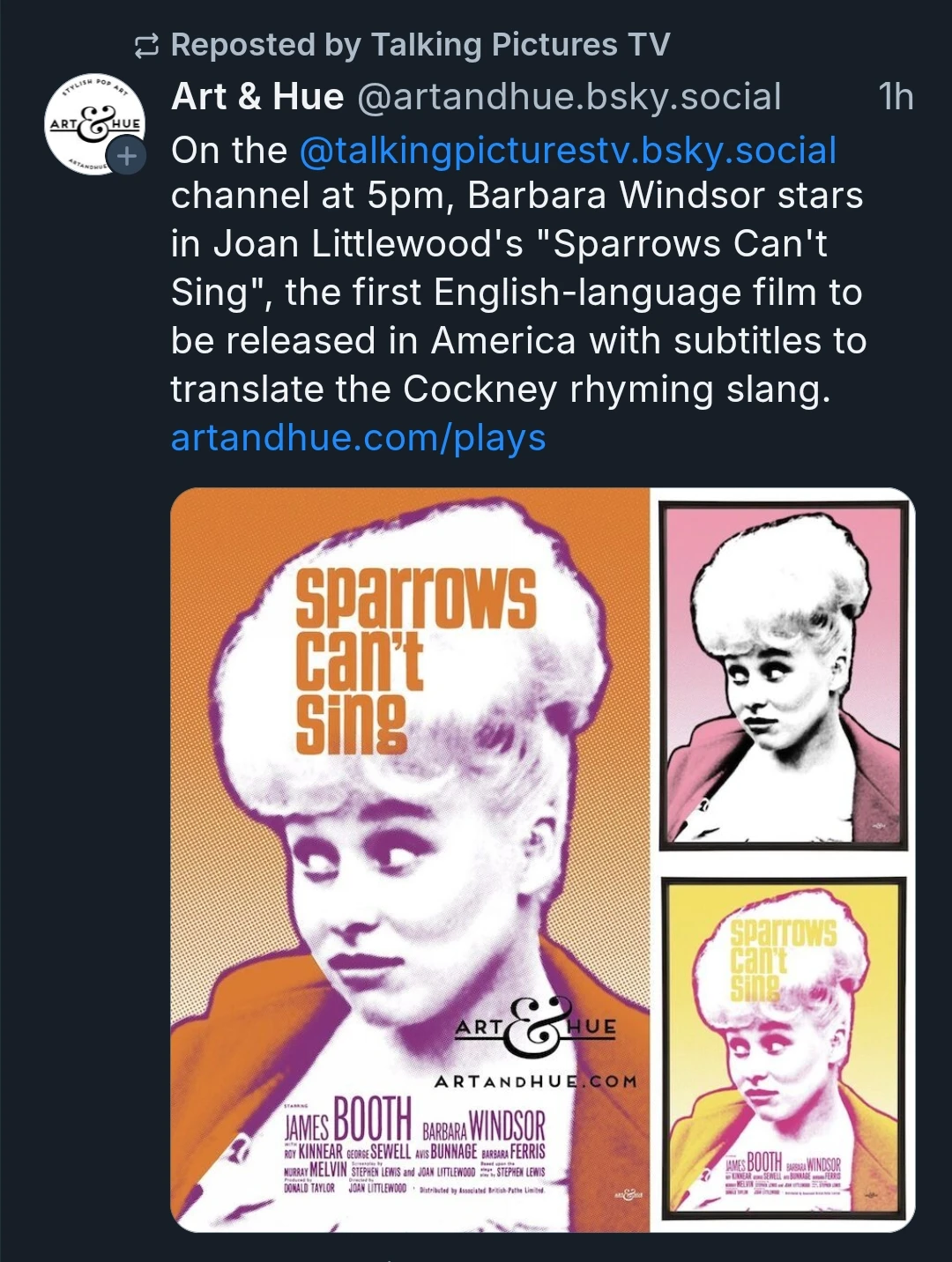British Films
261 readers
1 users here now
For all your British move-going needs as well as news about the British film industry.
See also:
Elsewhere in the Fediverse:
Rules:
- Be excellent to each other
founded 2 years ago
MODERATORS
1
2
3
4
Ithaqua | Hammer Films announces new monster movie with a seemingly AI-generated poster
(filmstories.co.uk)
4
5
6
Time Travel Is Dangerous review: sci-fi comedy finds a multiverse in Muswell Hill
(www.scifinow.co.uk)
6
7
8
9
10
15
Macbeth in cinemas with David Tennant and Cush Jumbo review – something wondrous this way comes
(www.whatsonstage.com)
11
12
13
14
15
16
17
18
19
20
21
22
15
Undercover film exposing UK far-right activists pulled from London festival
(www.theguardian.com)
23
6
The Rubber-Keyed Wonder: The Story of the Sinclair ZX Spectrum review – glory and geekery
(www.theguardian.com)
24
25
view more: next ›
